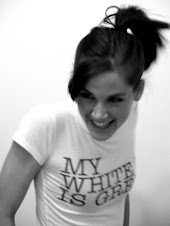Being the president of the so-called "free world" is hard. Gray-hair growing, ulcer and heart attack-inducing, assassination-attempt-lurking around every corner, hard. Yet as election time grows near, there is a predictably optimistic assemblage of American-born politicians over the age of 35 who still think they are up for the job.
This year is no different. But an interesting phenomenon is occurring: The profiles of the most viable candidates are more diverse than we have ever seen before. It seems that diversity is leveling the playing field and, in a reflection of American culture, giving Americans a pool of candidates who truly represent the broad differences in our population. But more choices on the primary ballot won't make figuring out whose name to fill in on your ballot any easier.
Since the mid-term elections way back in November 2006, I've had to keep CNN on 24/7 and check The New York Times Online almost hourly just to keep up with the flurry of pre-primary election activity. As far as I can tell, the 2004 Bush v. Kerry match-up will seem absolutely boring in comparison to Hillary v. Obama or Giuliani v. Romney v. McCain. "America's Mayor" Rudy Giuliani, from New York City, hasn't even formally declared his candidacy and yet political know-it-alls from both sides of the aisle are already weighing in on his viability as a general electorate candidate.
One has to wonder why this year is suddenly more competitive than 2000 or 2004, but the answer is really quite simple: The White House is effectively up for grabs. Despite a slight advantage currently held by the newly empowered Democrats due to negative public sentiment over the war in Iraq, social security woes and a fragile economy; they have yet to prove that anybody from their party would actually do a better job in real and measurable terms. Moreso every single candidate, regardless of their party affiliation, has an uphill battle ahead within their own party and in the general electorate.
Hillary is a woman. Obama is black-or perhaps not black enough. McCain refuses to regret his support of the war in Iraq. Rudy Giuliani has never held a national office. Mitt Romney is-gasp-Mormon.
Read the list again. There can be no doubt that each candidate faces a strong social stigma, but this struggle might just produce the best political climate that American voters have seen in a long time. None of these politicians can merely rely on good looks and pretty words. Each will be forced to defend their ideas and values, create good policy and answer tough questions. There won't be any pre-screening audience inquiries in this race, at least not if that candidate wants to win.
This race is all about answering the tough questions that have been evaded for the past eight years. The result will hopefully be what American democracy is all about: Getting the best qualified and most deserving candidate into office. That is, somebody who appreciates where they are, how they got there, and who understands the privilege and responsibility that come with serving the American people.
Looking at the big picture, it is almost impossible for the next president of the United States to not break at least one of the previously mentioned barriers to political success. But is America ready for a female/black/Mormon/independent party president? I don't know, but we'd better get there by November.
Saturday, February 24, 2007
Rookie of the Year
Subscribe to:
Comments (Atom)

